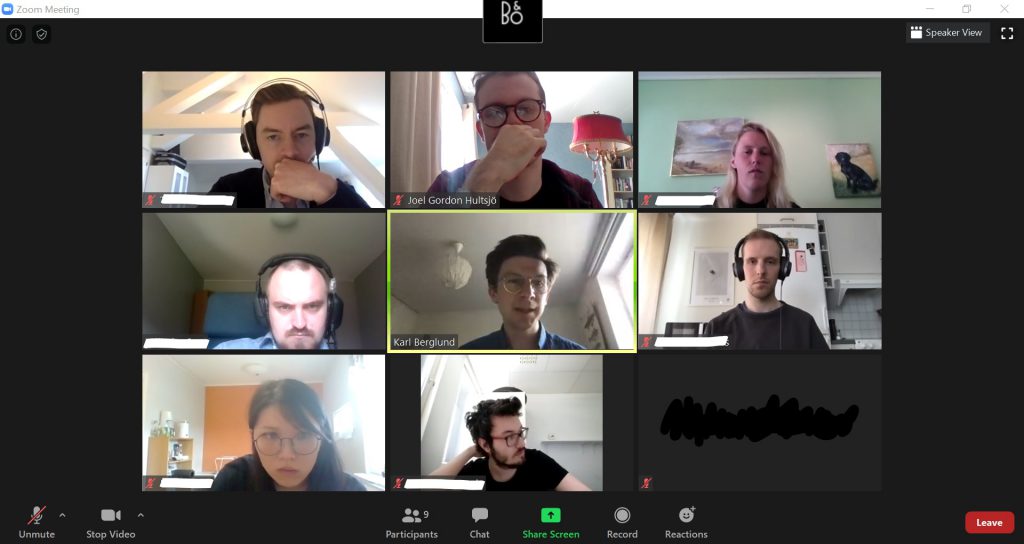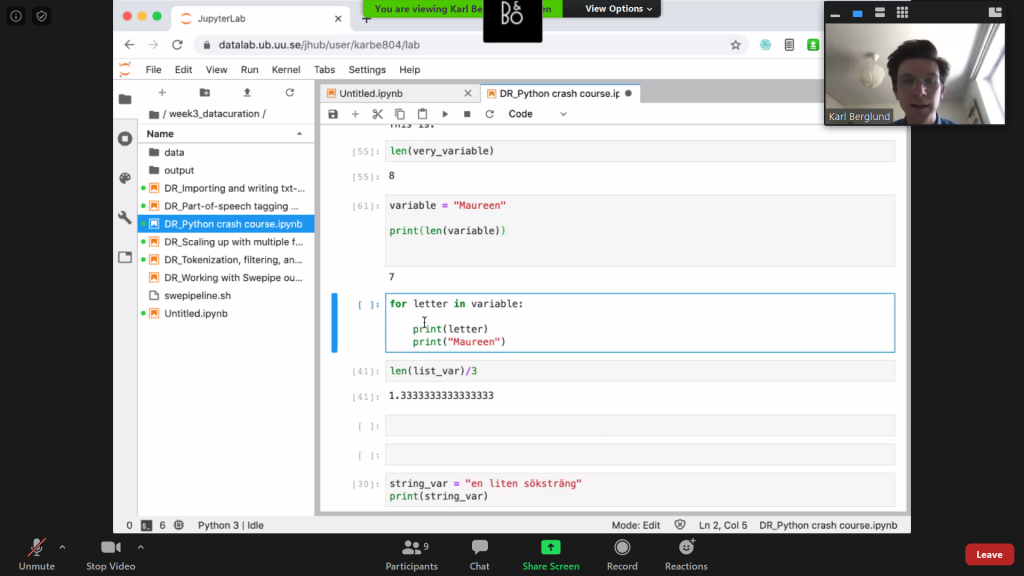Today I participated in a lab in the course Distant reading over Zoom about Data Curation headed by Karl Berglund.
In the data curation lab the students will learn how to automatically manage and manipulate digital texts in different ways.
We will depart from examples of Python code in Jupyter Notebook and, among other things, use the SpaCy module to perform principal tasks in Natural Language Processing, such as tokenization, lemmatisation, and part of speech-tagging.
If you want to read more about the course Distant Reading you can read this previous blog post. If you want to learn more about Karl Berglund and Distant reading, you can read this blog post from 2019.



